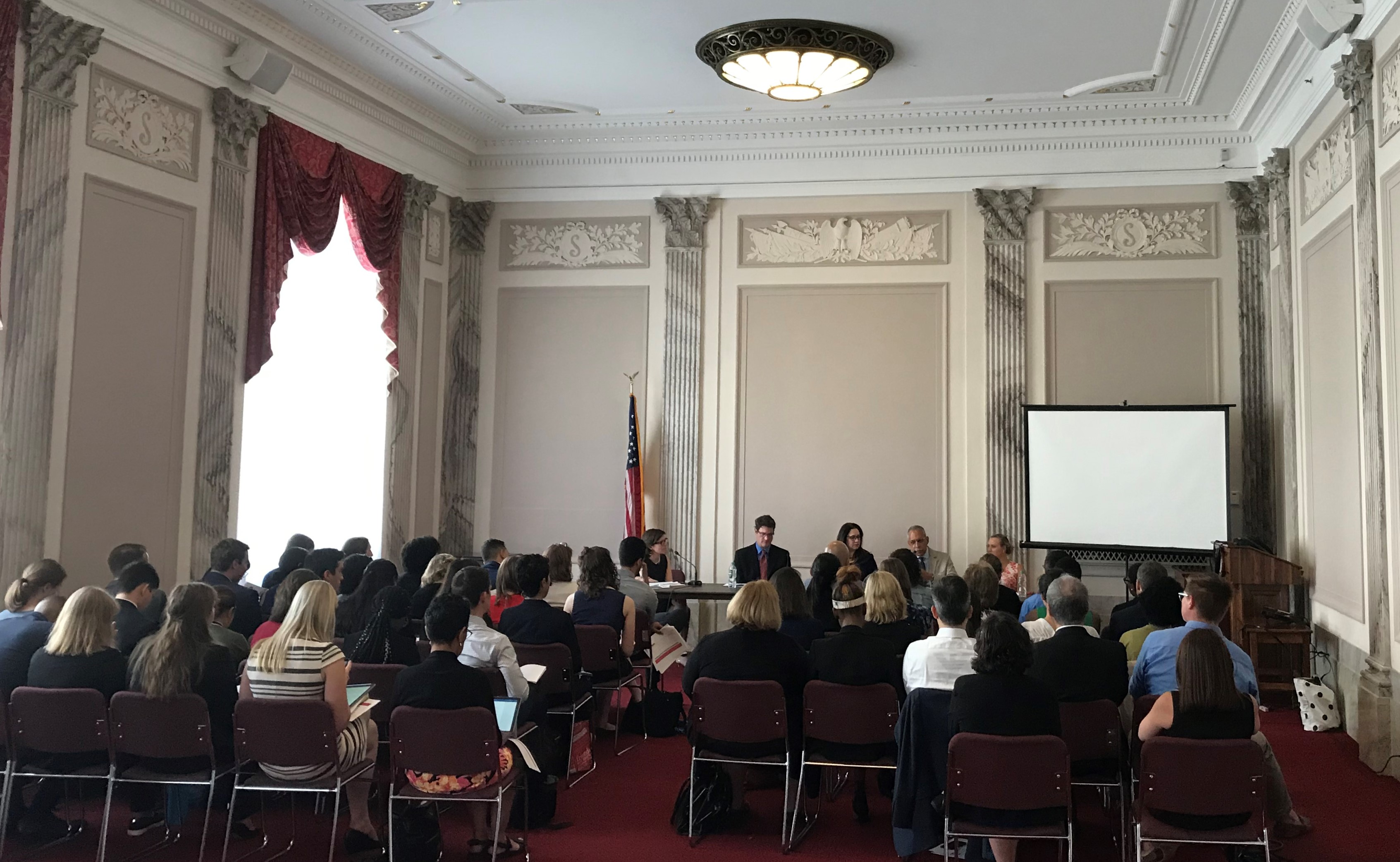The Role of Belonging in Postsecondary Completion
Chloe Stroman
Postsecondary education is an important pathway by which students can develop their careers and passions, but one that has major opportunities for improvement.
About half of all full-time, first-time students complete bachelor’s degrees within six years and an even smaller proportion completes associate degrees within three years. Students and policymakers are raising important questions regarding equity, quality, and relevance in postsecondary education.
The Student Experience Research Network hosted a briefing for congressional staff in Washington, D.C. about why student experience, and in particular, one’s sense of belonging, matters for postsecondary success. The event was designed to highlight evidence-based actions institutions can take to support postsecondary completion. The slides from the event are available here.
On the panel, Mindset Scholars Mary Murphy and Gregory Walton were joined by Claude Steele, a professor of psychology at Stanford University known for his pioneering research on stereotype threat and its negative effects on the performance of people from stigmatized groups. Lisa Quay, Executive Director of the Student Experience Research Network, moderated the panel. The event was planned in collaboration with EducationCounsel and the Raikes Foundation.
Panelists discussed students’ sense of belonging as a critical, yet underappreciated, condition for academic success. They explained that concerns about belonging are disproportionately experienced by members of underrepresented groups and have a negative effect on critical academic behaviors and outcomes in college.
The group shared what researchers and institutions are learning about how to support students’ sense of belonging in key academic transitions and urged policymakers and institutions to consider the implications of this rapidly growing body of research in their efforts to improve outcomes and educational equity in higher education. Take a look at the slides from the event to learn more.
This work is licensed under a Creative Commons Attribution-NonCommercial-NoDerivatives 4.0 International License.
tags: belonging
